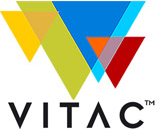Beijing 2022: VITAC Provides Captioning for Winter Games
As the 2022 Beijing Olympic Winter Games begin this week, athletes from around the globe have been training and preparing for their moment in the spotlight. So too have VITAC’s teams of captioners, schedulers, coordinators, and engineers.
 VITAC is North America’s leading provider of closed captioning, subtitling, transcription, and audio description services, and nearly every department gets involved in providing captioning services in English and Spanish for the roughly 1,400 hours of programming fans can watch across NBC’s broadcast networks. Adding 1,400 hours of additional Olympics coverage to its normal captioning schedule means that, for a few weeks, VITAC’s team is in a full-on aggressive forecheck of sorts to keep things running smoothly.
VITAC is North America’s leading provider of closed captioning, subtitling, transcription, and audio description services, and nearly every department gets involved in providing captioning services in English and Spanish for the roughly 1,400 hours of programming fans can watch across NBC’s broadcast networks. Adding 1,400 hours of additional Olympics coverage to its normal captioning schedule means that, for a few weeks, VITAC’s team is in a full-on aggressive forecheck of sorts to keep things running smoothly.
For the Olympics, VITAC captioners are on-air around-the-clock for the duration of every event. To make sure viewers at home can see the most accurate captions possible, realtime (live) captioners receive rigorous training and must meet designated captioning benchmarks before their debut on air.
Just as skates, skis, sleds, and snowboards need to be well-maintained and tested before athletic performances, VITAC has been working nonstop to ensure its equipment is ready, testing primary, backup, and redundancy scenarios as well as IP connections, phone lines, and audio lines.
The accessibility provider’s experience means it knows how to prepare for large-scale events like the Olympics and the many challenges that can come along with it. VITAC professionals meet well in advance to determine hours and schedules, and work with the network to create preparation materials for captioners. Names of athletes (both current and past competitors), historical data, and scripts for the opening and closing ceremonies are all information that captioners use to improve their accuracy while captioning on the fly.
Once the games begin, coordinators work with scheduling teams to ensure captioners are slotted for each event, and monitor network feeds to check that captions are displaying correctly on broadcasts. The team also keeps a running tally of medals won to add it to the captioner reference materials, so their work remains accurate throughout the entirety of the games.

